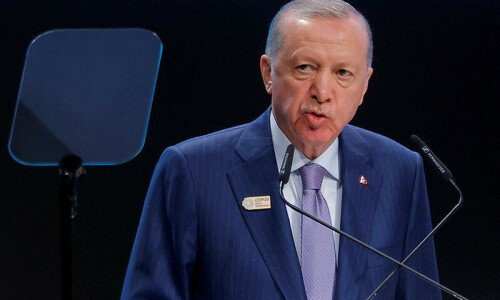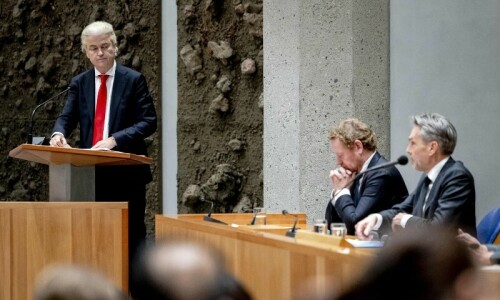CEMENT players continue to enjoy increasing gross margins courtesy declining global coal prices. The price of coal — a key raw material for the industry — had declined by about 19pc year-over-year by end-FY15 and reached $60 per tonne.
And latest data shows that coal has reached $50 per tonne.
Low coal prices are expected to continue in the short- to medium-term mainly owing to a decline in demand from China, which is said to be serious in tackling its pollution problem, as well as because of a slowdown in the country’s economic growth.
With a cumulative expansion of 7.7m tonnes coming from Cherat, Attock, DG Khan and Lucky Cement, the total industrial capacity will rise to 53m tonnes
Previously, China was responsible for up to 80pc of global coal consumption growth since 2000.
With demand from local sales continuing to remain strong and the concentration of local sales in overall sales rising to 82pc in the first quarter of FY16 (compared to 70pc in 2011), the industry’s overall revenues are likely to grow.
The cement industry has over the last two decades stayed ahead of the curve in terms of capacity to cater to the growing demands of the country. From 18m tonnes a decade back, the total capacity now stands at 45m tonnes.
Although the industry’s utilisation level is near the 80pc mark, some key companies have been operating above 90pc for quite some time. Keeping the rising economic growth of the country in mind — complemented by expected demand from China Pakistan Economic Corridor-related projects — three of the top eight industry players have decided to expand their current manufacturing capacities.
Cherat, Attock and DG Khan Cement (DGKC) have all formally announced plans to enhance their manufacturing capacity by 1.3m, 1.1m and 2.7m tonnes per annum respectively.
The expansion plan for Cherat Cement is expected to come online in 2HFY17, whereas the other two will be up and running in 2018.
Meanwhile, a recent notice and media reports indicate that Lucky Cement is also interested in increasing its capacity in the north region. The size of this plant is reckoned to be similar to that being set up by DGKC, with its commercial operation date (COD) likely in 2019.
Accounting for these four expansions of a cumulative 7.7m tonnes, the total industrial capacity will rise to 53m tonnes.
While the upcoming capacity expansions may lead to question marks over the sustenance of local cement prices, it is projected that owing to improvement in the demand outlook over the next eight years, the industry’s capacity utilisation will still remain at around 80pc, even after incorporating all the four expansions.
On the local front, sales are expected to grow 5-6pc — in line with the average 6pc growth achieved in the last two decades but much below the historical 15pc average annual increase witnessed during the boom period of 2003-08.
However, exports are likely to decline by 10pc during 2016-17, 5pc during 2018-20 and stay flat thereafter. After taking these conservative cumulative sales growth numbers of 3.5-4.5pc, we are confident that the industry’s prospects remain bright amid rising economic growth outlook, with capacity utilisation likely to reach 90pc by 2022. However, a key risk to capacity utilisation can stem from further capacity expansion by industry players.
—Abdul Rehman Siddiqui Alfalah Securities
Published in Dawn, Business & Finance weekly, October 26th , 2015
On a mobile phone? Get the Dawn Mobile App: Apple Store | Google Play













































